Kinhtedothi - Discussing the Electricity Law (amended), National Assembly deputies proposed that there should be regulations on how long it takes to delay paying electricity bills before interest is charged. At the same time, interest should not be charged to poor households and lonely elderly people to ensure humanity.
On the afternoon of November 7, discussing the Electricity Law (amended), National Assembly deputies focused on discussing groups of issues such as: institutionalization and concretization of the Party's policies and guidelines; the consistency, unity and feasibility of the provisions in the draft Law; the content of concretization of 6 policies on Planning and investment in electricity development; development of renewable energy and new energy; conditions for electricity operations; management of electricity trading activities and electricity prices; safe use of electricity after the meter and ensuring the safety of dams and hydroelectric reservoirs...
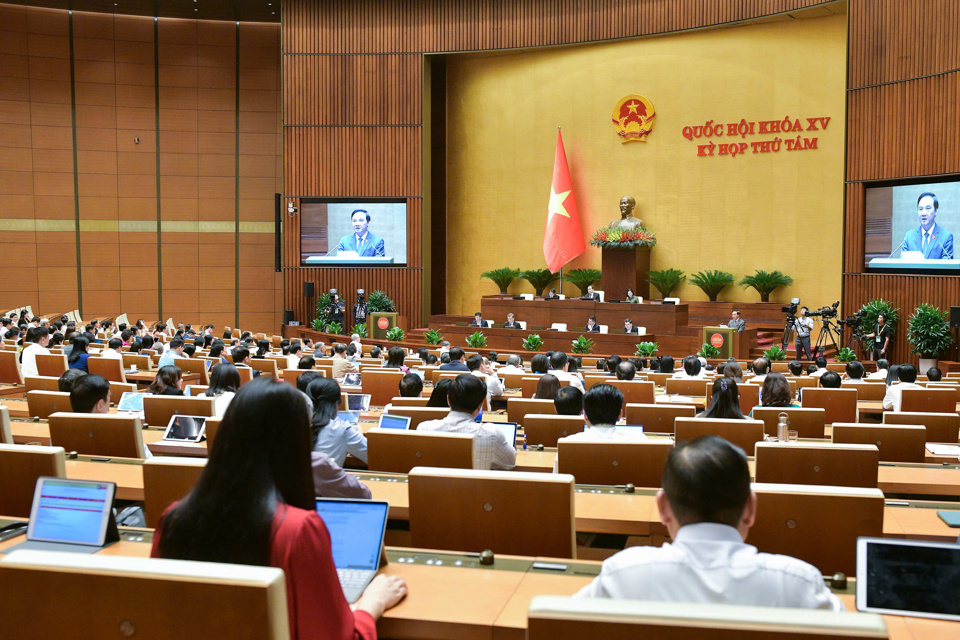
Creating a legal corridor for the development of a competitive electricity market
Concerned about the construction of a competitive electricity market in recent years, National Assembly delegate Nguyen Thi Viet Nga (National Assembly delegation of Hai Duong province) said that this policy has not really come into practice. People still have the mentality that electricity is a monopoly.
Therefore, in this revision, the delegates suggested that the Drafting Committee continue to review and perfect the regulations, ensuring a legal corridor for the development of a truly competitive electricity market; meeting the aspirations of voters.
Speaking at the discussion, National Assembly delegate Nguyen Duy Thanh (National Assembly delegation of Ca Mau province) was concerned about the monopoly issue of the electricity sector. Accordingly, at point c, clause 2, article 5 of the Draft Law stipulates that "The State shall specifically operate the transmission grid, except for the transmission grid invested in and built by non-State economic sectors".
Delegates believe that such a provision would contradict Clause 5, Article 5 of the Draft Law, which eliminates all unreasonable privileges and maximizes socialization of investment channels, exploitation of services, and facilities of the National transmission system on the basis of ensuring national defense and security.
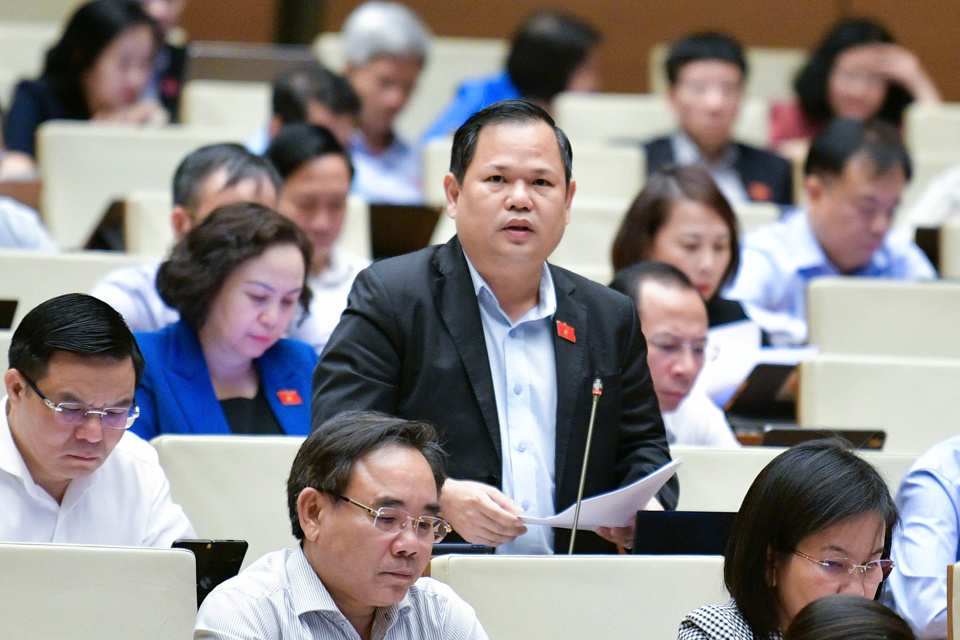
According to delegate Nguyen Duy Thanh, currently, about 95% of the national power grid is invested by the State, so it is difficult to implement socialization as desired in the Draft Law. Therefore, the delegate proposed to revise point c, clause 2, article 5 of the Draft Law in the direction: The State has a monopoly on the operation of the transmission grid, high voltage and ultra high voltage.
Regarding the issue of decentralization and delegation of power, the delegates proposed that the Central Government only approve the planning of power projects, while the appraisal and approval of projects are left to the localities to implement according to the standards and regulations of the power industry. "This is in line with the General Secretary's direction on institutional breakthroughs and reduction of administrative procedures," delegate Nguyen Duy Thanh proposed.
Calculating interest immediately after late payment of electricity bill is not appropriate.
National Assembly delegate Nguyen Thi Yen Nhi (Ben Tre delegation) said that Clause 4 of Article 77 of the Draft Law stipulates that if the electricity buyer does not pay for electricity and has been notified twice by the electricity seller but has not paid, the electricity seller has the right to stop supplying electricity. However, according to the delegate, the notification here does not specify any form, such as writing, calling or texting... Therefore, the Drafting Committee needs to clearly stipulate that only after being notified in writing twice, the seller has the right to stop supplying electricity.
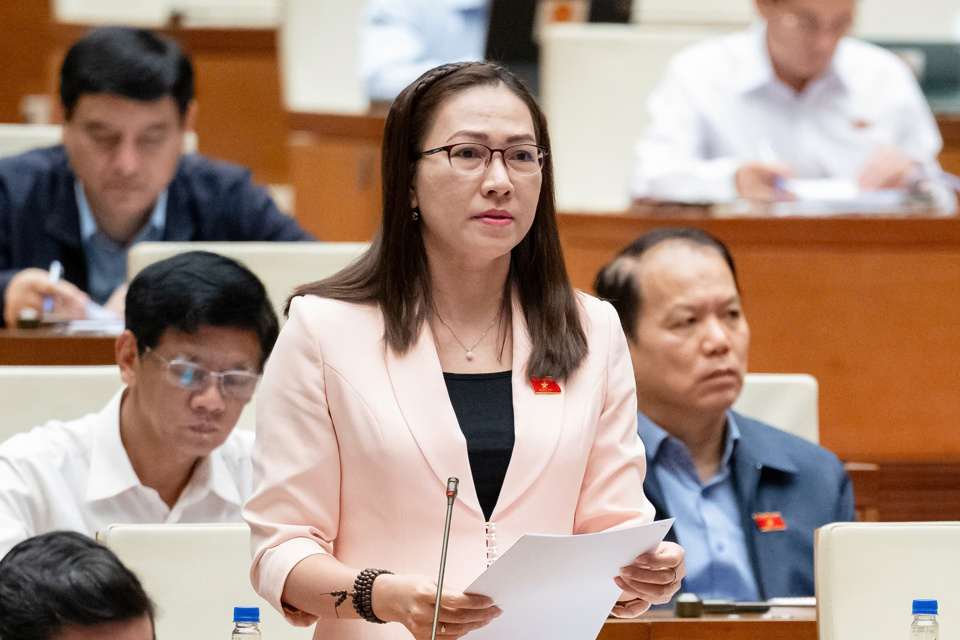
Also interested in the provisions of Article 77 of the Draft Law, delegate Nguyen Thi Viet Nga said that Clause 1 stipulates the payment of electricity bills according to the electricity purchase contract for customers using electricity for domestic purposes. Specifically, electricity bills are paid according to the payment method agreed upon by the two parties in the electricity purchase contract. The electricity buyer who is late in paying the electricity bill must pay interest on the late payment amount to the electricity seller corresponding to the late payment period.
According to the delegate, this regulation helps bind the responsibility of electricity customers in paying electricity bills, which is appropriate and ensures the interests of the electricity supplier. However, for customers using electricity for daily life, forgetting to pay electricity and water bills, leading to late payment for a few days, is easy to happen. Therefore, calculating interest immediately after late payment of electricity bills is not really appropriate.
Delegates proposed that there should be regulations on how long the payment is delayed before interest is calculated, at least 1 month. At the same time, no interest should be charged for households that are in difficulty or elderly people who are late in paying their electricity bills to ensure the humanity of the regulations.
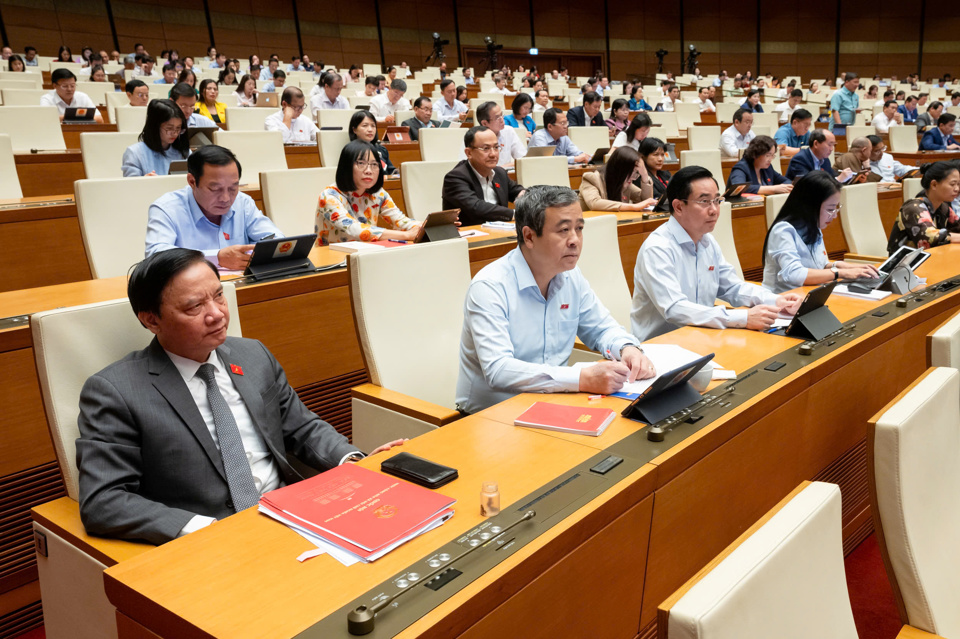
Prepare power sources in advance to ensure energy security
Agreeing highly on the need to amend the Electricity Law as well as perfect the institutional contents, National Assembly delegate Ta Van Ha (National Assembly delegation of Quang Nam province) said that there are 2 issues to resolve the current bottlenecks. In 2023, the National Assembly conducted a thematic supervision of the energy development policy for the period 2016-2021. The supervision pointed out the results and many bottlenecks. Therefore, this Draft Law needs to absorb those results.
At the same time, the delegate emphasized that electricity is not a surplus commodity that can be packed into warehouses but must be managed according to the needs of the economy. To ensure energy security, when the economy grows, the demand for electricity also increases.
"With the current economic growth rate, if we do not prepare one step ahead, energy security will face many difficulties. Therefore, I think it is very necessary and urgent to amend the Electricity Law as well as perfect the legal system on electricity" - delegate Ta Van Ha expressed.
Agreeing to comprehensively amend the contents of the Law, the delegates also proposed to pass the Law in 2 sessions instead of the shortened process of 1 session as proposed by the Government because to comprehensively amend the contents of the Law with important issues, passing it in 1 session is not guaranteed.
Source: https://kinhtedothi.vn/dbqh-de-nghi-khong-tinh-lai-cac-ho-kho-khan-neo-don-khi-cham-dong-tien-dien.html


![[Photo] Prime Minister Pham Minh Chinh starts construction of vital highway through Thai Binh and Nam Dinh](https://vphoto.vietnam.vn/thumb/1200x675/vietnam/resource/IMAGE/2025/5/12/52d98584ccea4c8dbf7c7f7484433af5)

![[Photo] Prime Minister Pham Minh Chinh works with the Standing Committee of Thai Binh Provincial Party Committee](https://vphoto.vietnam.vn/thumb/1200x675/vietnam/resource/IMAGE/2025/5/12/f514ab990c544e05a446f77bba59c7d1)
![[Photo] Prime Minister Pham Minh Chinh receives Swedish Minister of International Development Cooperation and Foreign Trade](https://vphoto.vietnam.vn/thumb/1200x675/vietnam/resource/IMAGE/2025/5/12/ae50d0bb57584fd1bbe1cd77d9ad6d97)




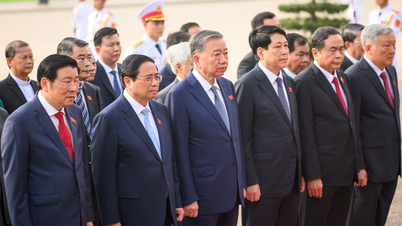














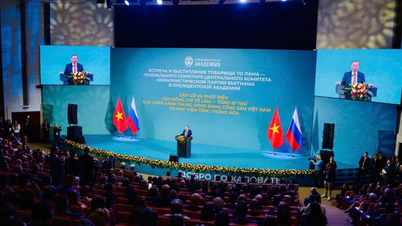









































































Comment (0)